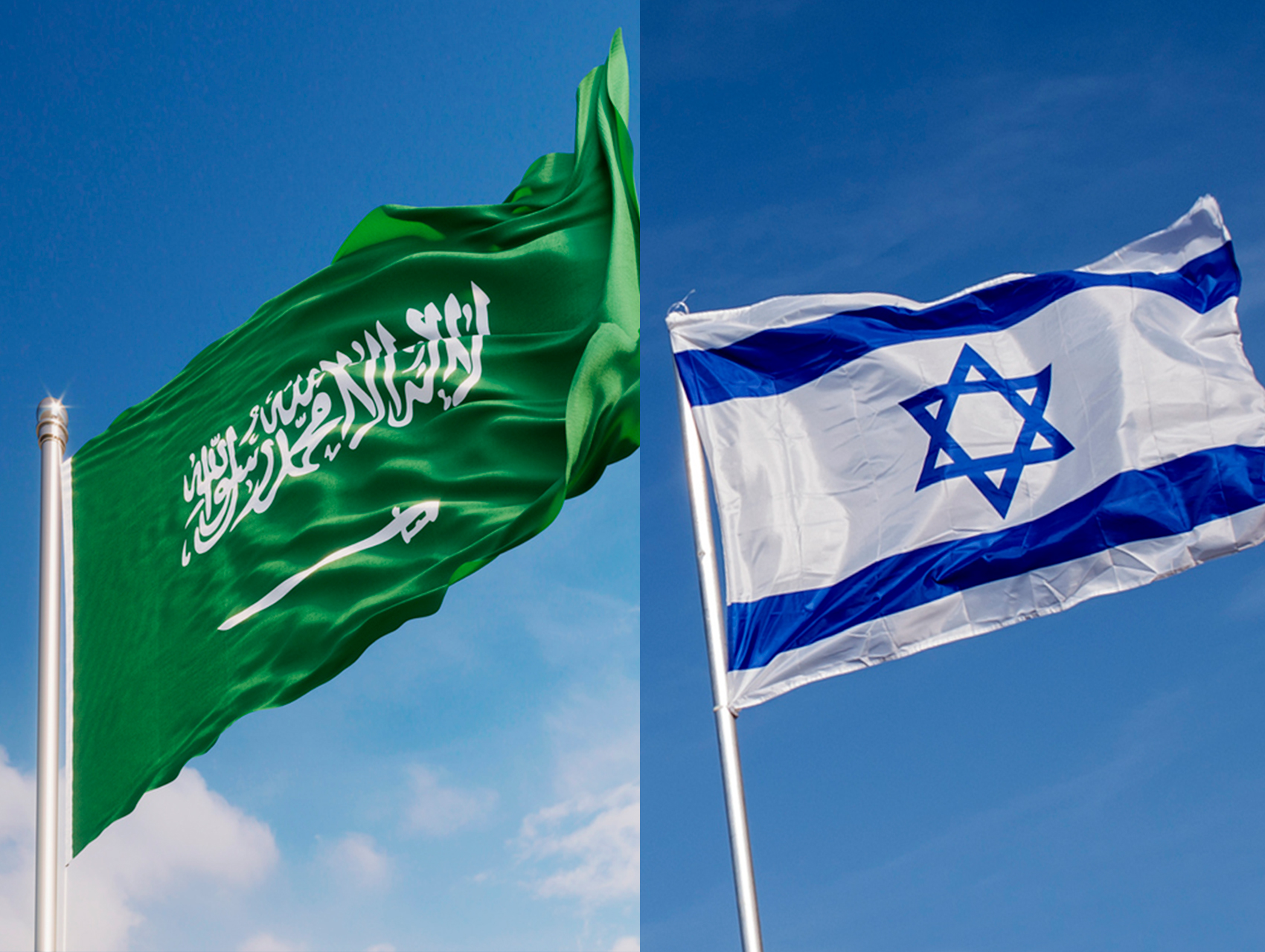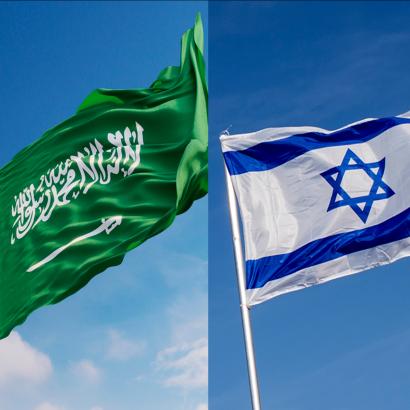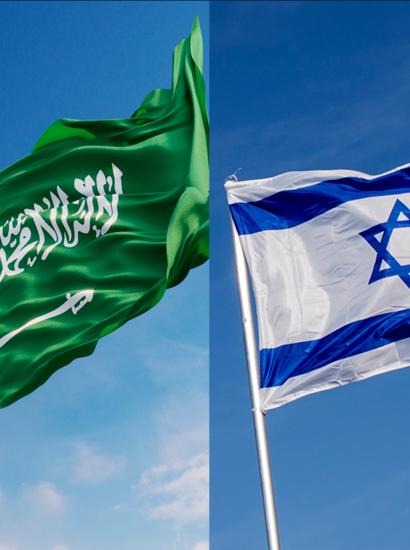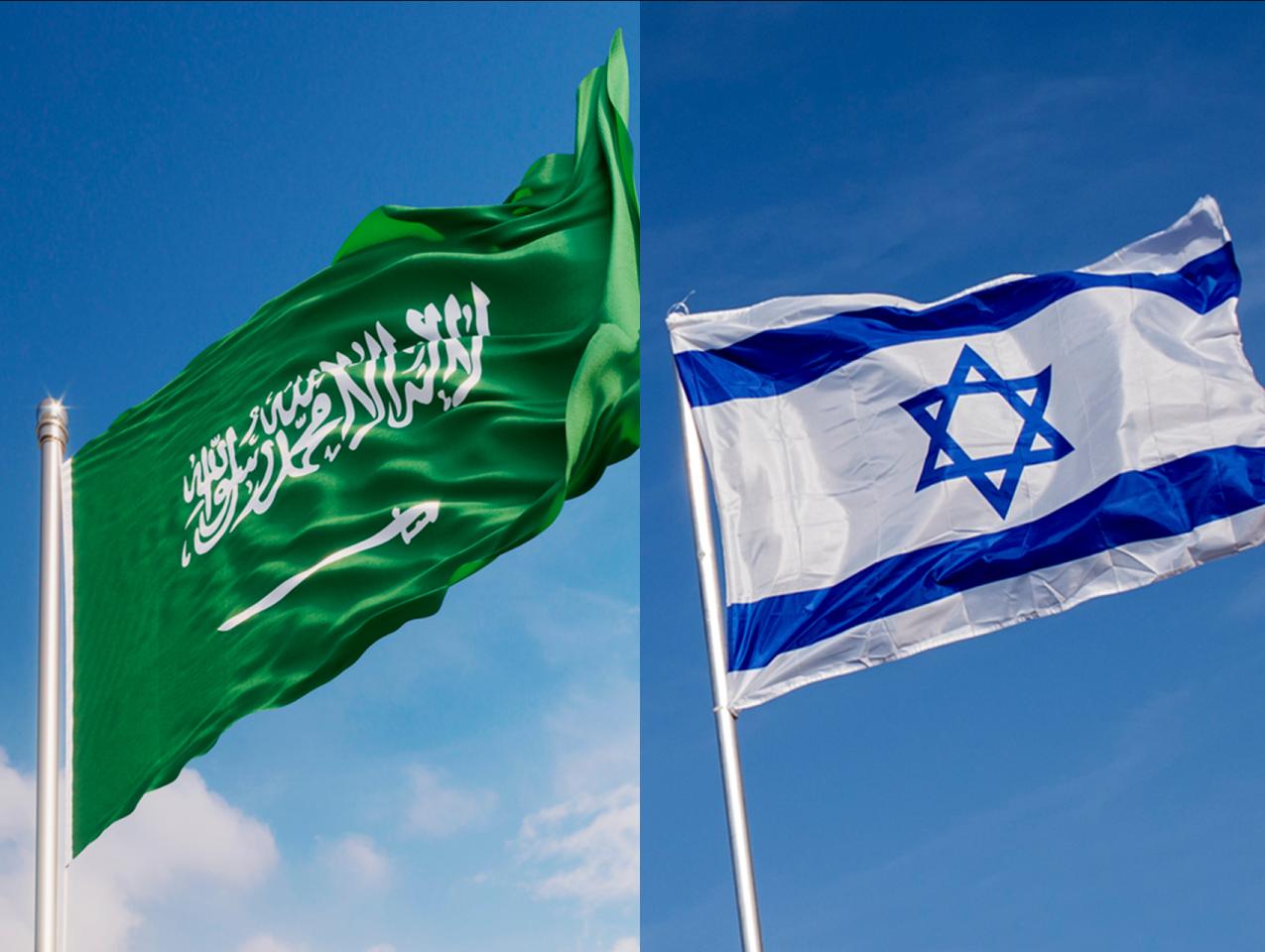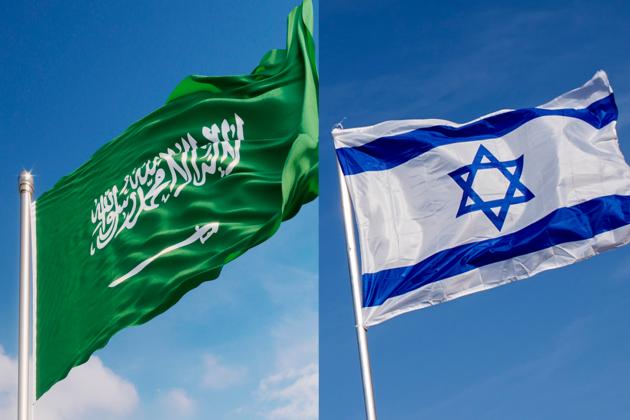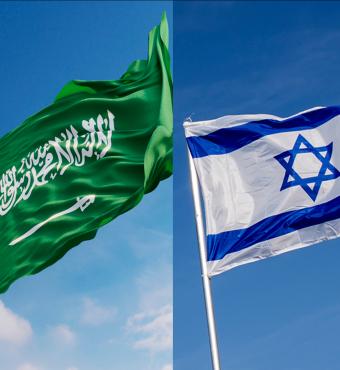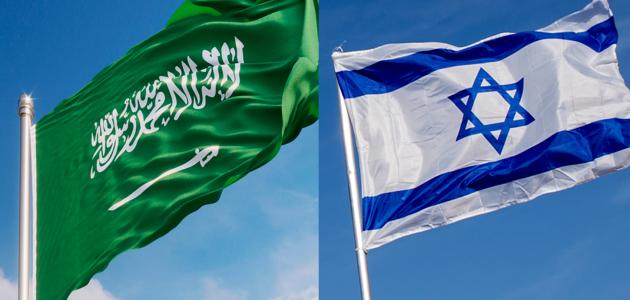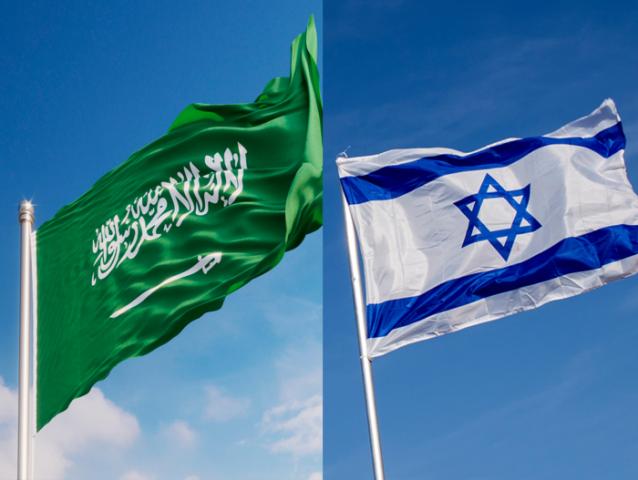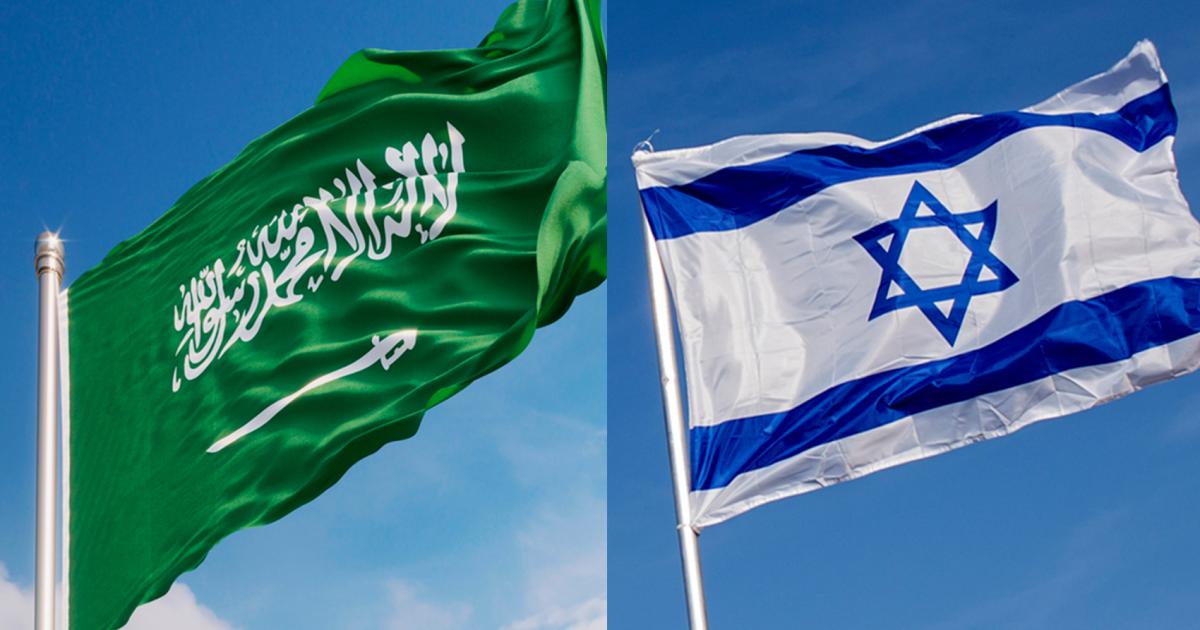- Middle East
- Revitalizing History
A big question in American foreign policy and government circles is the likelihood of Saudi Arabia normalizing ties with Israel. Israel appears ready to normalize immediately because of the many symbolic and material benefits this would produce. Prime Minister Benjamin Netanyahu is keen on this and has made it a top policy priority of his new government. In numerous public appearances, he has spoken of his hope that Saudi Arabia will join the Abraham Accords, the 2020 initiative led by the Trump White House that produced normalization agreements between Israel and the United Arab Emirates, Bahrain, Sudan, and Morocco. Netanyahu has made a direct pitch for this in the Saudi media, speaking in an interview with Al Arabiya of “what could be a truly remarkable historic peace with Saudi Arabia.” Such a peace, he said, “will be a quantum leap for an overall peace between Israel and the Arab world. It will change our region in ways that are unimaginable. And I think it will facilitate, ultimately, a Palestinian-Israeli peace. I believe in that. I intend to pursue it.” Of course, the intended peace would depend on the Saudis as well. “[I]t’s up to the leadership of Saudi Arabia,” Netanyahu continued, “if they want to partake in this effort. I certainly hope they would.”
The Saudis are evidently less enthusiastic about this prospect. At the recent World Economic Forum in Davos, Switzerland, the Saudi foreign minister, Prince Faisal bin Farhan, ruled out normalization without the creation first of a Palestinian state on the basis of the two-state solution. He stated: “We need to be able to give the Palestinians hope, and the only pathway to hope is a state and dignity and sovereignty for the Palestinian people. If we can do that, that removes a huge drag on the entire region, a source of potential conflict that is always going to be there if not resolved.” The Saudis and the Israelis would thus seem to be at loggerheads. For Netanyahu, a resolution to the Palestinian issue is something that ought to follow normalization, whereas for Prince Faisal, a resolution to the Palestinian issue is a prerequisite for normalization. This apparent clash of views notwithstanding, normalization is still very much in the cards, even if it is still a ways off.
Today we have, in addition to Egypt and Jordan, four Arab countries that have normalized relations with Israel based on the Abraham Accords that President Trump led and endorsed. Here lip service was paid to the right of self-determination of the Palestinians but peace was signed in each case without the Palestinians obtaining any tangible benefit. One of the four, Bahrain, depends heavily on Riyadh’s support, and probably would not have proceeded without Saudi Arabia’s explicit approval. The widespread perception is thus that Riyadh gave its blessing to the accords even as it abstained from them. This is not altogether surprising, as it is widely acknowledged that Riyadh and Jerusalem have security and defense relations, handled at the level of the respective chiefs of their foreign intelligence service. So why can’t the extra step of normalization be taken?
One answer concerns Saudi Arabia’s historic role as the intended broker of Palestinian-Israeli peace. Unlike the signatories to the Abraham Accords, Riyadh sees itself as having played a key role in trying to resolve the Palestinian-Israeli conflict by rallying Arab support for various peace initiatives that would provide a framework for its resolution. The late King Fahd (d. 1995) led an effort named the Fahd Plan in 1981 based on an eight-point plan for comprehensive peace. This was followed up two decades later by his successor King Abdullah (d. 2015) with the Arab Peace Initiative of 2002 that has been endorsed repeatedly by the Arab League. Successive Israeli governments have not accepted these Saudi-led plans for a variety of reasons, yet they remain the bases of the Saudi view on normalization. Meanwhile, the Saudi government has been a major contributor to relief efforts for the Palestinians, such as during the Second Intifada of 2000-2005, and it has been acknowledged for this by both US and Israeli governments.
Perhaps the most widely touted answer for Saudi hesitancy to join the Abraham Accords is that while Saudi Crown Prince Muhammad bin Salman (MBS) is favorable to normalization, his father, King Salman, is not, for reasons that are not altogether clear. And since the monarch is absolute in his power, peace will not be achieved so long as King Salman reigns. This, however, is an overly simplistic view of the matter, and one that ignores the absolute power on the reins of government that MBS enjoys. There are far better explanations of these dynamics that involve domestic Saudi factors as well as regional and international relations.
Let us begin with the domestic Saudi factors. Saudi Arabia is in the midst of a major set of political, social, and economic reforms. Power is now consolidated and centralized in the hands of the Crown Prince and the space for debate has become severely restricted, with punitive repercussions for most forms of dissent and criticism. By contrast, the country is socially liberalizing, with women able to dress more freely and becoming more engaged in the public sphere. Musical concerts and other forms of entertainment are all the rage in places such as Boulevard Riyadh City and in Al Ula, a spectacular ancient Nabatean site. To do this, the government has restricted and silenced the religious elements in society—the reactionaries—who see these changes as a violation of Islamic norms and worse. Economically, there is a major push to diversify the economy away from its dependence on oil and petrochemicals, and this is being led again by the government and its sovereign wealth fund, the Public Investment Fund. These changes are associated with what is called Vision 2030, the centerpiece of MBS’s project of transformation. All of this means that the government has its hands full domestically. In the context of what is a socioeconomic revolution at home, normalizing relations with Israel is simply not a top priority, not least because it might generate more opposition to MBS and Vision 2030.
The Saudi government has a very textured reading of its society. Teams of analysts work at trying to understand the views of different segments of the population. This is mostly done through surveillance of the social media platforms (Twitter, Facebook, etc.) and is referred to in the data analytics industry as sentiment analysis. While we do not have access to this information and therefore cannot know with certainty the Saudi government’s assessment of domestic views on Israel, polling in Saudi Arabia by outside organizations indicates that only 20 percent of the population approves of full normalization. The same polling claims that 40 percent of the Saudi population approves of contacts between officials of the two governments. Notably, this is a higher percentage than in Egypt and Jordan, where just 10 percent of the population approves of such contacts. Nonetheless, under such circumstances, and given Riyadh’s other concerns and the reforms already underway, it is understandable why this might not be a top priority for MBS.
Next there is the regional context and the challenge posed by Iran. Saudi Arabia considers Iranian policies—whether this be its ballistic and cruise missile program or its drones or its support for non-state militias like the Huthis in Yemen—to represent an existential threat to the regime. More than any other factor, the Iranian menace has pushed Saudi Arabia closer to Israel because they share a common enemy. However, normalization is not necessary for accomplishing the desired effect of deterring Iran. Riyadh and Jerusalem have a security and intelligence sharing relationship that is active and that generates a degree of deterrence. In recent years, particularly since the eruption of the Arab Spring in 2011, these hidden ties have come out into the open with revelations of secret meetings between high-ranking Israeli and Saudi leaders. One such report, from November 2020, claimed that Netanyahu visited Saudi Arabia on the Red Sea coast where he met with MBS. While the Saudis denied the meeting took place, the effect of such reports is to create the perception of a united Israeli-Saudi front vis-à-vis Iran. Tehran has to assume that Saudi Arabia might give Israel’s air force overflight and refueling rights in the case of an attack, if not provide even more assistance. Normalization, in this context, would add little to the deterrence that has already been achieved. Indeed, the ambiguity in the present situation might even prove more effective because Iran does not know the extent and nature of what Riyadh will be willing to do.
Another concern relates to Saudi Arabia’s status as “the Land of the Two Holy Places” of Mecca and Medina. As home to the birthplace of Islam, the kingdom has the distinction of being the center of the Islamic world. While this confers major reputational advantages, it also increases the risks of normalization given that most of the world’s Muslims remain hostile to Israel. Saudi normalization could serve to symbolize normalization between Israel and the Islamic world. But it could also spark a global backlash that Iran might be able exploit in the event of a conflict between the two countries.
Lastly, there is the international dimension of any peace agreement with Israel, and this pertains specifically to Washington. In each case of an Arab country making peace with Israel, the United States not only had to be the shepherd of the process but also had to foot the bill by offering various concessions and inducements. In the case of Egypt, Washington rewarded Cairo with increased economic and military aid which since the Camp David accords in 1978 has cost the American taxpayer tens of billions of dollars. As for Jordan, Washington pledged to forgive hundreds of millions of dollars of Jordan’s debt to the United States in 1994, and two years later designated Jordan “a major non-NATO ally” of the United States. When it came time for the Abraham Accords, Morocco obtained US recognition of Rabat’s sovereignty over the contested Western Sahara region, Sudan was removed from the State Department’s list of state sponsors of terrorism, which meant that funds could flow to pay off government debts, and the UAE obtained clearance for high-end military sales. Because of this, it is expected that Saudi Arabia would want major US inducements to normalize relations with Israel, and it has been explicit to American visitors about what these might be.
At the top of the list is the guarantee of the country’s security from external threats. What is intended by this is some form of NATO-like treaty commitment along the lines of “major non-NATO” ally status, which both Egypt and Jordan enjoy and which Qatar recently received. This could include security guarantees for other countries of the GCC as well as Israel so that this is not framed exclusively as pertaining to Saudi Arabia. Next is a guarantee of the sales of military equipment so that these are not constantly threatened to be withheld by Congress. The Saudis would like to find a workaround to partisan American politics. This might be an impossible task under current conditions, yet it is an element of what a normalization package would have to address. Thus, until the US is willing to provide the Saudis with all or some of the above, normalization is likely to remain a distant reality.
That said, we predict that the Saudis will eventually make peace with Israel and for several reasons. First, Israel represents a model of economic development and technological prowess that MBS admires and wishes to emulate in the Kingdom. Israeli investors and tech sector leaders are already visiting and doing deals in Saudi Arabia. Second, NEOM, the futuristic city that MBS is building in the northwest of Saudi Arabia and which is intended to rival cities like Dubai, is a short distance from Israel. Given its size and ambition as a regional hub, it will be impossible for NEOM to thrive without normalization with Jerusalem. An antagonistic relationship with Israel will vitiate its potential as a global city. Lastly, Saudi development plans are driven by pragmatism and not by ideology, and certainly not the ideological obsessions of the past century, namely Arab nationalism and Islamism. Peace with Israel will be centered on a cost-benefit analysis, and in the long run the benefits of peace will far outweigh its alternative.
The question is no longer if Riyadh will normalize ties with Israel but rather when and how. As a senior Saudi official recently told one visitor, while “[i]t makes sense for us to normalize with Israel” given our shared interests, doing so comes with considerable risks. “Domestic extremists will attack us. The Iranians will stir up instability. Our economy could suffer. Our standing as the leader of the Islamic world could suffer.” With the possibility of such a backlash, “we need several things from the United States first to help us balance the risks.” The Biden administration, given its antipathy to MBS, is unlikely to take the steps that would tip the scales in favor of normalization, but a future administration may very well be prepared to do so. In the meantime, Riyadh and Jerusalem will continue inching closer together, their courtship awaiting an officiant to seal the deal.







